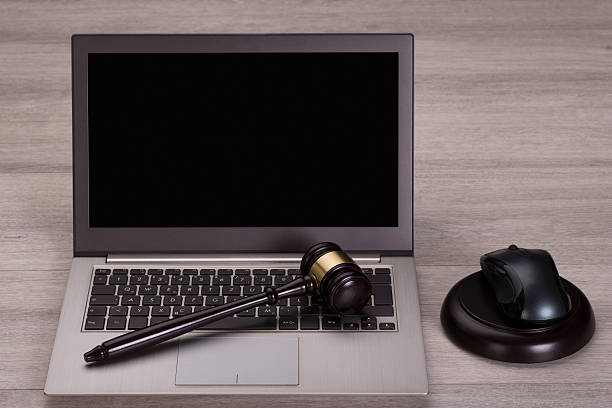Understanding the Basics of Remote Online Notarization

Welcome! You’re about to navigate through the often foggy and complex world of remote online notarization. By the end of this comprehensive guide, you’ll have a crystal-clear understanding of what a remote online notary is and how it works. So, let’s jump right in, shall we?
Table of Contents
1. What is a Remote Online Notary and How Does it Work?
2. Benefits of a Remote Online Notary
3. The Legal Landscape of Remote Online Notarization
4. How to Find a Trusted Remote Online Notary
5. Preparing for Your Remote Notarization Appointment
What is a Remote Online Notary and How Does it Work?
Definition and Overview
What are remote online notaries? How do they work? This blog will explore these two topics. A remote online notary is often referred to as RON, is a licensed notary public who can notarize documents online using digital tools and a live video call. This approach to the old procedure allows people from anywhere in the world to have their documents notarized online.

The Notarization Process
The remote notarization process may seem like a magic trick, but it’s actually quite straightforward. Here’s a step-by-step rundown:
1. Both parties agree to conduct the transaction online.
2. The signer logs into the RON platform and verifies their identity, usually through knowledge-based authentication questions.
3. The notary and signer connect via a secure video call.
4. The signer digitally signs the document on screen while the notary watches.
5. The notary then applies their electronic seal and signature to the document.
6. The notary records the transaction in their electronic journal and the notarized document is sent to the signer.
Benefits of a Remote Online Notary
Convenience and Accessibility
A big benefit of using a remote online notary is how convenient it is. Imagine needing to get documents notarized really early in the morning or during lunch break. With remote online notarization you can do it whenever and wherever you want, as long as you have internet access.
Security and Fraud Prevention
RON isn’t just convenient, it also makes things safer. It uses digital tools to make sure people are who they say they are, keep track of any change to documents and even records the whole process on video. This helps stop fraud and makes everything more secure.
The Legal Landscape of Remote Online Notarization
Laws and Regulations
When it comes to whether RON is legal or not, things can get a bit unclear. In the US, the permission for remote online notarization depends on each state. Eac state has its own set of rules and regulations regarding this matter.
State Differences
Not every state treats RON the same way. Some states have fully accepted RON, while others only permit it in certain situations.For example, Texas passed a law allowing RON in 2017, making it one of the first states to do so. On the other hand, some states are still working on catching up with this legislation.
How to Find a Trusted Remote Online Notary
Steps to Select a Notary
When you’re choosing an online notary who works remotely, it’s important to do some research. Begin by reading reviews about them online and confirm their official status with the secretary of state office in your state. Above all, make sure they follow strict rules to protect your information and keep your privacy safe.
Recommended Platforms
There are several reputable platforms that connect you with trusted remote online notaries. Notarize and NotaryCam are two highly-rated options, both offering 24/7 notary services.
Preparing for Your Remote Notarization Appointment
Document Preparation
Before your notarization appointment, prepare your documents. This includes having a clear, readable copy of the document and any additional materials you might need.
Identification Verification
You’ll also need to prove your identity, just as you would with an in-person notary. This often involves answering questions only you would know the answer to, and showing a valid photo ID on camera.
Frequently Asked Questions (FAQs)
1. What documents can be notarized remotely?
Most documents that can be notarized in-person can also be notarized remotely. This includes wills, trusts, power of attorney documents, and more. However, the specific types of documents that can be notarized remotely can vary from state to state.
2. Is remote online notarization secure?
Yes, remote online notarization uses advanced technology to ensure the security of the process. This includes tamper-evident technology on documents, secure video conferencing, and strict identity verification procedures.
3. Is remote online notarization legal everywhere in the US?
The legality of remote online notarization varies by state. As of my knowledge cutoff in September 2021, most US states have enacted legislation to permit remote online notarization. However, it’s crucial to verify the current status in your specific state.
4. Can international documents be notarized remotely?
Yes, as long as the notary is physically located in a state where RON is legal, they can notarize documents for signers located anywhere in the world.
5. How much does remote online notarization cost?
Pricing can vary widely depending on the platform and type of document being notarized. It’s always best to check the notary’s fee schedule beforehand.
6. Can I use any device for my remote notarization?
Generally, you can use any device (computer, tablet, smartphone) with a reliable internet connection, a webcam, and a microphone.
Conclusion
With this detailed guide, you’re now prepared to use remote online notarization. Although notarization may seem old-fashioned and complicated, modern technology like RON makes it easier, safer and more convenient than ever before. Technology has crossed barriers and made a more convenient and secure future.
